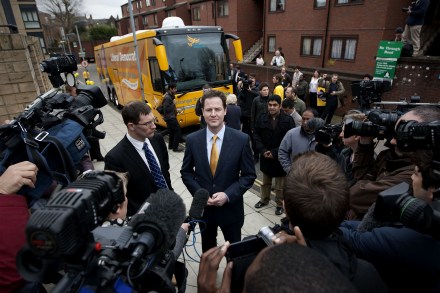The case for Nick Clegg
Ok, this won’t be one of my more popular opinions, but here goes … Nick Clegg is a Good Politician. And I don’t mean that in some Machiavellian sense – although, for all I know, that might be true. But, rather, that he’s got some decent ideas and ideals, and he presents them convincingly. This is why he deserved his victory in yesterday’s TV debate. It wasn’t the novelty factor, as Fraser claimed last night. It wasn’t even really his plague-on-both-your-houses positioning. No, last night was the culmination of two years in which – politically speaking – Clegg has kneaded and pulled his party into one which can stand, unashamed, on a













